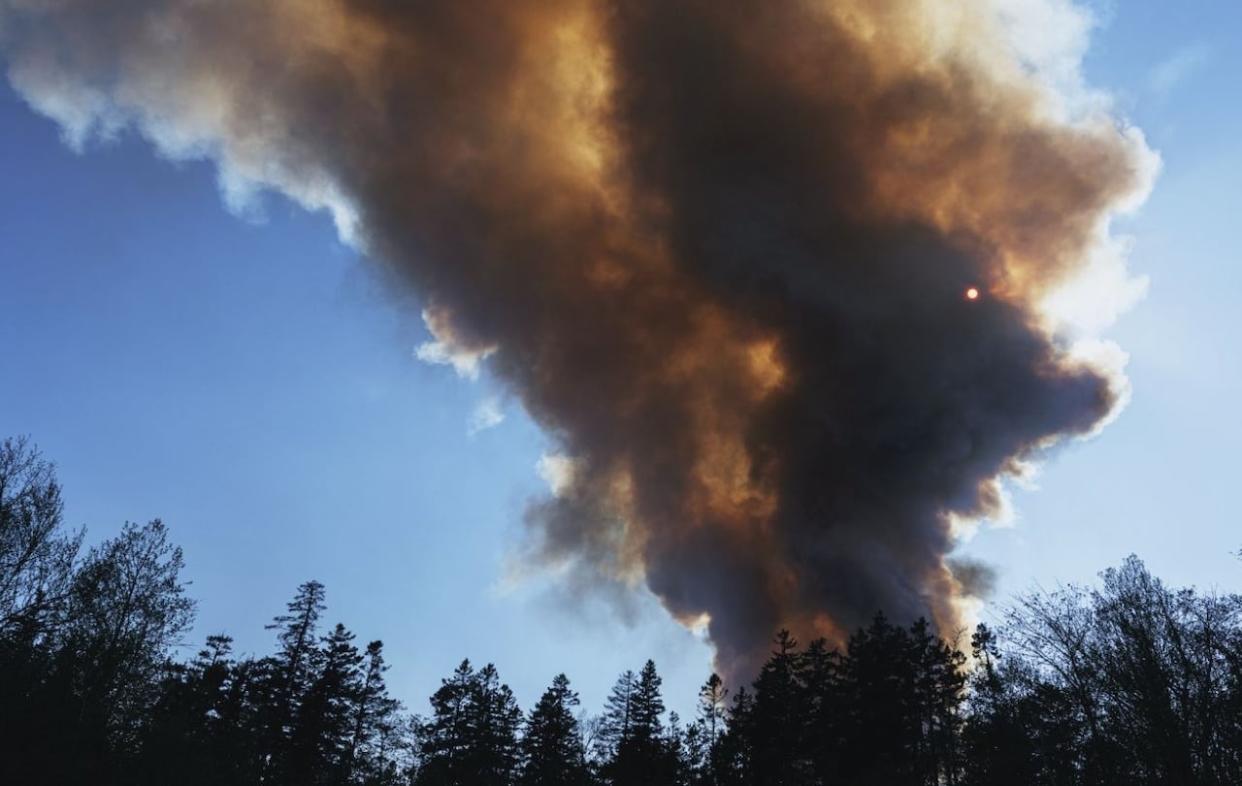Wildland firefighters call on Ontario to acknowledge risks linked to toxin exposure

Noah Freedman has recently been reviewing the forest firefighter training manual to prepare himself ahead of his ninth fire season.
He is vice-president of Local 703 of the Ontario Public Service Employees Union (OPSEU) and a forest fire crew leader with the Ministry of Natural Resources and Forestry (MNR).
"I'm astounded and reminded that our employer doesn't provide any training whatsoever on hazards associated with exposure to forest fire smoke," he said.
"They still advise firefighters to cover their faces with a dry fabric covering even though this was proven to be an ineffective way to protect yourself from toxic or chemical emissions."
Last week, a joint health and safety committee with the MNR filed a recommendation that the government do more to inform, educate and protect forest firefighters against exposure to cancerous toxins.
The document cites a growing body of evidence suggesting firefighters are more likely to get cancer than the average worker.

Forest firefighters are exposed to toxins in the workplace and are not provided with adequate personal protective equipment, according to the joint health and safety committee recommendation. (South Frontenac Fire & Rescue/Facebook)
Freedman said wildland firefighters cannot properly consent to doing their jobs if the employers don't inform them of the risks.
"Some people might not want to continue doing the job or take on the job in the first place, and that's their right," he said.
Not eligible for work compensations if ill
Unlike urban firefighters, forest firefighters cannot access workplace compensation and support if they develop serious illnesses, like certain kinds of cancers, in the long term.
Keesha Bell, spokesperson for Ontario's Workplace Safety and Insurance Board (WSIB), said forest firefighters could be eligible for certain policies if the government summoned them to work in an emergency situation, but not under their regular employment with the Ministry of Natural Resources.
"Any changes to who is covered by the WSIB would come from the government," she said.
In all but four jurisdictions in Canada, wildland firefighters are excluded in legislation from the presumptions granted to structural firefighters, who respond to fires inside buildings, as well as fire alarms, chemical spills and accidents.
For Freedman, the issue boils down to the government not recognizing wildland firefighters as firefighters.
"We need to be reclassified, and it's truly shocking the amount of pushback we've had on this from the Ontario government," he said.
"We're not entitled to any occupational benefits, and really, they're not benefits — they're a matter of human rights," said Freedman.
The joint health and safety committee recommendation is also calling on the government to make improvements to personal protective equipment (PPE) it provides to forest firefighters.
It is asking the MNR to provide a response to its recommendations by Feb. 15.
The ministry did not respond to a request for comment by the time of publication.

